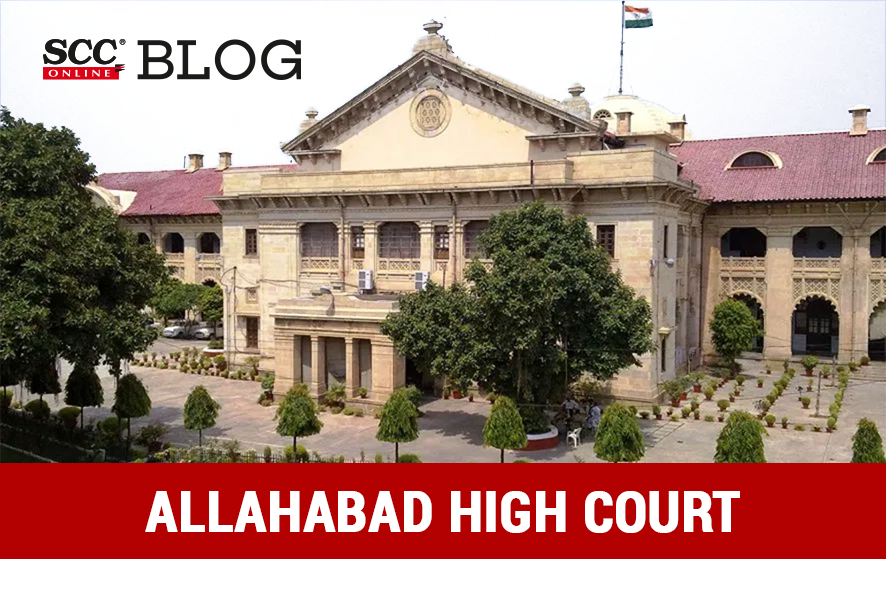Allahabad High Court: In a bail application filed by the accused for offences under Sections 498-A, 323, 302 of the Penal Code, 1860 (‘IPC') and Section 3 read with Section 4 of Dowry Prohibition Act, Krishan Pahal, J. by considering the fact that the investigating officer has fairly exonerated those accused who were named in FIR, but their names were absent in statements of the deceased that tantamount to the dying declaration and that a young lady has been set to fire by the accused within the precincts of the place they both used to live, rejected the bail application plea of the accused.
In the case at hand, the informant lodged a First Information Report (‘FIR') alleging that his sister married to the accused as per Muslim customs about seven years before her death. After the marriage, the accused and co-accused persons have subjected the deceased to cruelty for demand of dowry and used to beat her up every now and then. The accused also had an affair with another woman. Further, the deceased person had stated to all the family members that the applicant and his family members had been beating her for several days and kerosene oil was sprinkled on her by all the accused persons, and she was set on fire.
The accused contended that no presumption under Section 113-B of Evidence Act, 1872 can be drawn in the present case, as the marriage of the accused with the deceased was solemnized in the year, 2010 and thus, a period of more than seven years has passed till the date of offence. Further, the dying declaration is not supported by any medical certificate of treating doctor. The deceased was almost burnt more than 90% as such was not in a position to talk, thus, the said statement made by the deceased to any person is not admissible at all. The applicant has been in jail for more than four years.
The issue was whether the statement of deceased to the police and the treating doctors pass the test of dying declaration or not?
The Court said that a dying declaration is hearsay evidence. It is settled law that though a dying declaration is entitled to great weight, and the accused has no power of cross-examination. Thus, it was insisted that the dying declaration should be of such nature as to inspire full confidence of the Court in its correctness, and the Court must be on guard that the statement of the deceased was not as a result of either tutoring or prompting or a product of imagination.
The Court took note of Varikuppal Srinivas v. State of A.P., (2009) 3 SCC 415 , wherein it was held that once the Court is satisfied that the declaration was true and voluntary, it can base its conviction without any further corroboration. It cannot be laid down as an absolute rule of law that the dying declaration cannot form the sole basis of conviction unless it is corroborated. The rule requiring corroboration is merely a rule of prudence.”
Further, it placed reliance on Betal Singh v. State of M.P., 1987 Supp SCC 431, wherein it was held that in a case of bride burning, the dying declaration recorded by a police officer, can be acted upon if the same is found to be true, coherent, consistent, and free from any effort to prompt the deceased to make such a statement.
Answering the argument raised by the accused that the said dying declaration is not in the form of question and answers, the Court placed reliance on State of Karnataka v. Shariff, (2003) 2 SCC 473 , wherein it was held that a dying declaration cannot be discarded on that ground alone, that it is not recorded in question-answer form. The statement recorded in narrative form is more natural and gives version of the incident as it has been perceived by the victim.
The Court after examining both the dying declarations, said that the contents are almost the same although the police has recorded it in vernacular Hindi and the treating doctors have done so in English. There is nothing on record to suggest that the police or the treating doctors had any animosity with the applicant. The investigating officer has fairly exonerated the accused who were named in FIR, but their names were not mentioned in the statements of the deceased that tantamount to dying declaration. Thus, the presumption of fair action on the part of the police and the treating doctors arose here.
Thus, the Court rejected the bail application plea of the accused. However, considering the period of detention of the accused, it directed that this pending case before the Trial Court be decided expeditiously.
[Anees v. State of UP, 2023 SCC OnLine All 53, order dated 15-02-2023]
Order by: Justice Krishan Pahal
Advocates who appeared in this case :
Counsel for Accused: Advocate Syed Ali Imam, Advocate Laxmi Shankar
Counsel for Victim: Government Advocate







